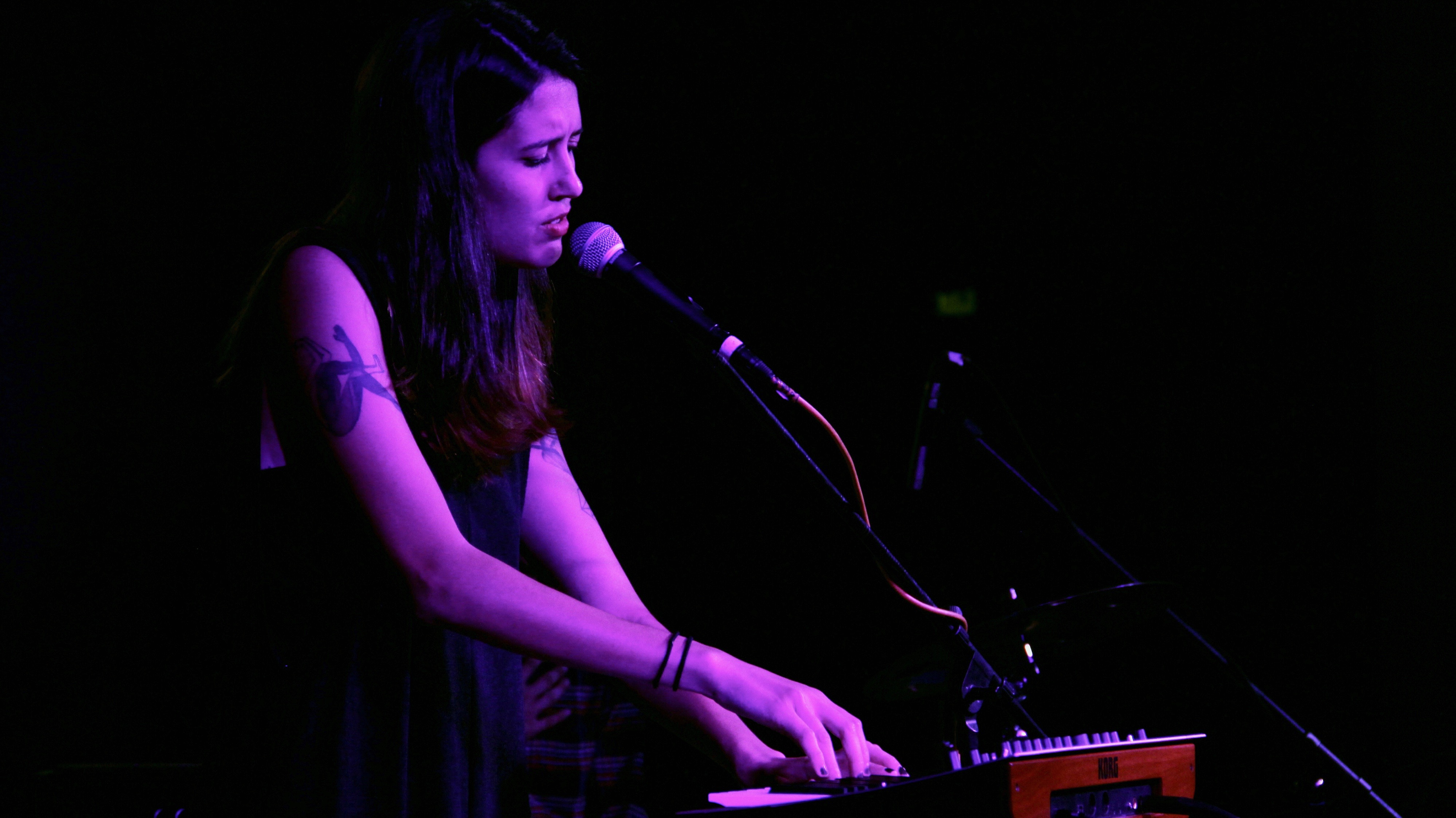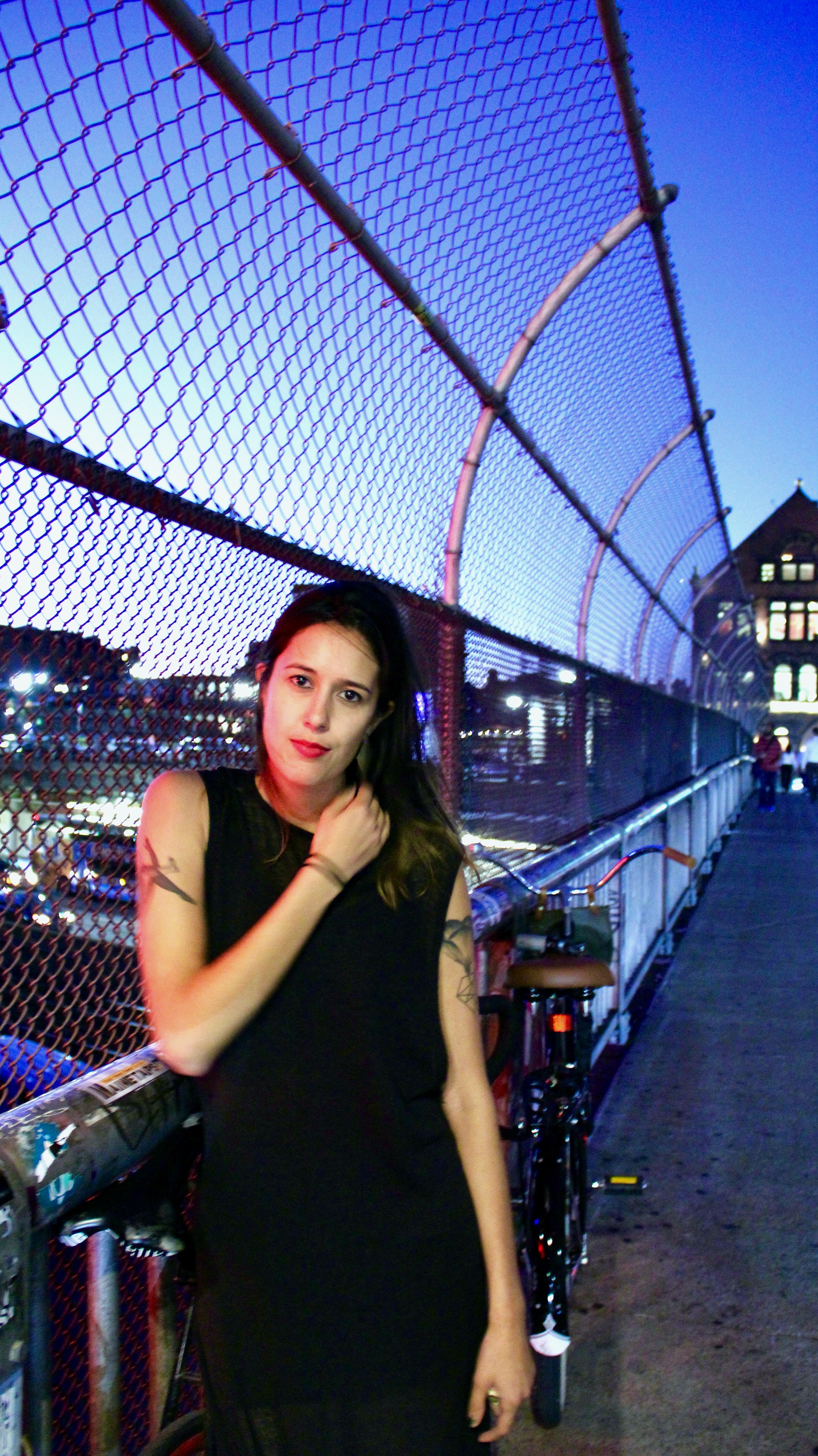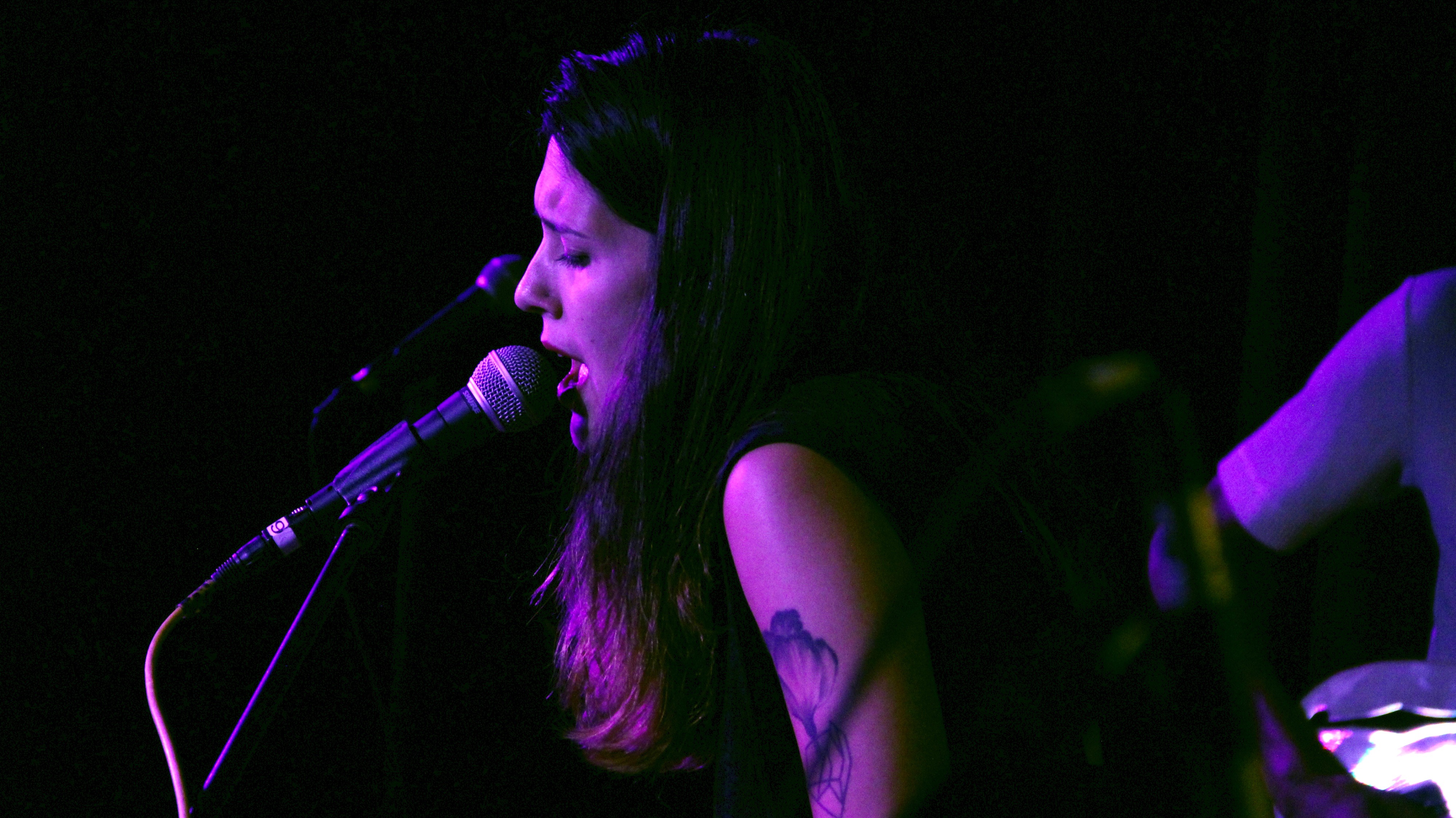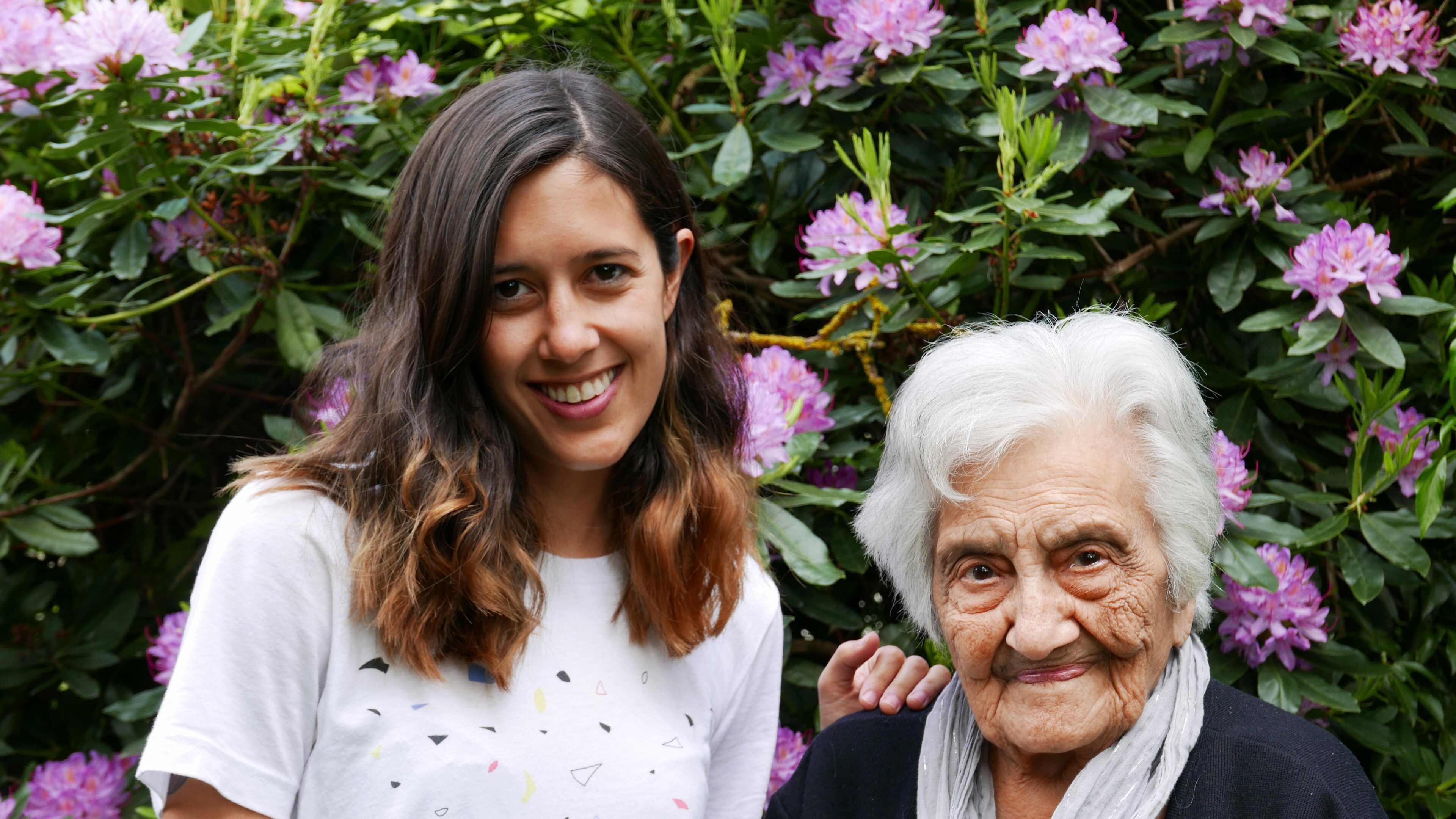
Nandi Rose Plunkett is one of the most genuine people I have had the pleasure of interacting with. I am always delighted when our paths cross. Her presence feels as soothing as it is engaging, much like the music she produces as Half Waif. This year’s release form/a is a testament to the growth she has undergone as a musician in her own right, while being cast in the spotlight as a member of the band Pinegrove. The attention is not always positive – this summer Plunkett penned an op-ed for Esquire about the difficulty she has faced being the only female member of her other project. We sat down a few weeks ago to catch up while enjoying a cider at Bukowski’s where, even in dealing with latent misogyny, Plunkett embodied more than her fair share of grace and strength. Talking about her frustrations with a society that still silently endorses patriarchal values, she spoke to actively recognizing and discussing issues as they come up:
“It is crazy to me how much we take from the time we are young and how a lot of these experiences we take for granted as ‘Oh, this is part of how our life is.’ I’ve had a number of young girls come up to me at shows and it is the best thing, for them to say ‘Oh, I’ve read your article, thank you for that,’ but a couple of them have said that they didn’t even realize this was happening to them until they read it. And that’s scary, that we absorb it to a point that until we start talking about it we’re maybe not even aware that it’s an issue until we step outside of ourselves and examine it – and then we can get angry. […] I think talking about it such an important first step in recognizing it happening in your life and then helping others become aware of it. I’ve had so many men say that they didn’t even realize that was what [someone was] doing or being so outraged on my behalf but It’s like how do you not know that this happens? And they don’t! So I hate that it’s our responsibility to talk about it but it’s also a role I will gladly take on if I know that it’s going to make even one small footstep of change in the right direction. I think that’s where we have to start, just talking to each other and to men and shouting at the system until it starts to break.”

Her op-ed was released during a wave of female-centric journalism in popular media which has been a breath of fresh air in the often masculine driven space of arts journalism. But in the past five months leading up to the start of her current tour with Julien Baker, Plunkett has mostly dedicated herself to the process of writing and recording in a house in Chatham, NY, with the instrumentalists who contribute to her project, Zack Levine and Adan Carlo. The trio are all also members of the band Pinegrove – the other members of which have been living in a house in Kinderhook, 10 minutes away.
It wasn’t an easy find – Plunkett laughed while recounting the stress of the band’s first rent application being rejected. “There aren’t that many properties to rent in rural, upstate New York,” she said. “It’s not like the city where there’s all of these places – there were two houses we could have gotten in that area that really worked for us.
“The first one we got rejected from because basically they saw that we were musicians and I think that they freaked out. Then the next one we kind of learned our lesson and realized we have to send in our New York Times and New Yorker mentions which is so hard to be like – Well look what [we do] – but people need to see that because when they see ‘musician’ they think, “Oh, they’re not going to be able to pay, they probably don’t have real jobs, and they’re just making music in the woods.” But this is our profession, this is how we make money! We’re very fortunate that we’re in the position that we can support ourselves doing this.”
The band has been hunkered down since then and the house has served as a necessary change of scenery for Plunkett, who has found comfort in the wildlife and solitude. She said:
“Writing this album you get so internal, so in your head and in your stories. So I would go to the pond [outside of the house] to clear my head and what I loved about it was that there’s this whole other ecosystem that was existing right in front of my eyes that had nothing to do with me. Those animals didn’t care that I was standing there watching them. They didn’t care about my problems, they didn’t care that I was a musician or that I was writing an album – this whole pond life just went on. It was a really good way to get out of my head and put a lot into perspective.
I think that was something I couldn’t have done in the city. When you’re in the city you’re around all of these other people and their problems and they tell you about them – you’re very strapped into the sagas and dramas of people’s lives but when it’s just you and nature, it’s… soothing. […] There’s so many people around but you get mired down into your own shit and a lot of people’s, and being in nature, upstate, has been really freeing and I think that’s really given me the opportunity to focus on this album in a way that I couldn’t before.
It has been the most fun I have ever had working on a body of work. It’s been so fun! And it’s really reminded me that what I love about what I do is writing and recording. I also love performing and that’s cool too – there are elements of touring and performing that are really hard for me! I have really bad stage fright and lugging your gear, all of that, it’s challenging. So it’s good to remind myself why I’m doing this is for the love of writing and creating and being in the woods and getting to do that for five months is such a gift and a really good reminder for me.”

While setting has played a crucial role in the formation of this album, there are far more influences at play, the most overt being the passing of Plunkett’s grandmother.
The first time I met Plunkett she introduced me to her mother and sister. They were there to see her perform at the Great Scott, beaming with pride during her set. When we met up again in England she was coming from her grandmother’s house, whose gardens were taken out of a fairy tale. Needless to say, family is a crucial part of Plunkett’s identity and the passing of her grandmother was weighing heavy on her, only a few days after attending the funeral. Reflecting upon their relationship, the insight she provided into the special place grandparents hold, the passing of loved ones, and the beauty of simplicity:
“She really was one of the most important people in my life and there’s something really pure about your love for your grandparents. It’s not caught up in the complicated relationships that you might have with your parents or your siblings – that one generation removal allows it to exist in a really special place. I’ve really come to realize that something that my grandmother taught me was the purity of love and she lived this really simple, clear life. She was in the same house for fifty-seven years after she lost her home in Uganda, after her husband died unexpectedly from a heart attack and she had four young kids – she just found herself suddenly in England, this Indian woman, and she lived in that house ever since and didn’t work. So I’ve often wondered, what did she do all those years? What sustained her? And I came to realize – and even more so now after reading her journals since she passed – she was sustained by the love for her family and she was also a spiritual woman, had a guru she was very devoted to, and she just lived this really clear life. That was how she was in the world and it doesn’t always feel possible to live that way but I think I strive now to bring that out into the world in the way that she did. She was just gracious and grateful – she always talked about how lucky she was in her life and she had a really hard life but she wasn’t ever complaining. She just really was such a light to so many people. Even at the end all of the nurses, the hospital staff loved her and wanted to adopt her as their grandmother. She was just a really light being and I carry that with me now and I feel really grateful that I was her granddaughter and that I get to look in the mirror and I see her now, I see her even more.
“Something I’ve realized since she passed is that when she was alive she held her spirit inside of her but since she has passed her spirit exists in new ways. And so I kind of get to have more of her than I did when she was alive because I get to carry more of her spirit since she can’t carry it in her body anymore. And that makes me feel really good that I have that light inside of me now. I’m so glad that I’m working on this album that’s dedicated to her, it already was for her. It was already inspired by her in a lot of ways and she heard some of it before she died.
“Her passing – even though she was 95 – it was very unexpected. It was very quick, she went into the hospital and within a day and a half she passed. So we didn’t really have time to process that but I’m so glad that I have this now, this project that is about to come out. I’m about to finish it, this week I’ll be done with my vocals and I get to put that out to the world in her name.”
Lavender is sure to be an exploration of peace in one’s surroundings but also the people who are crucial to your sense of self. “[You are] looking at your past while simultaneously looking at your future, in that you’re going to become that,” she said. “It’s heavy stuff but it’s important.”

A photo of the artist and her grandmother, photo courtesy of artist and taken by Zack Levine.
This thread of reflection, anticipation of the future, and grounding was brought up again when we spoke about the vinyl release of her previous album Probable Depths and its inspiration, “Dream Cycle.” The song cycle was up-cycled into several tracks on the album with help from friend and producer Zubin Hensler, including “Nest” and “Tactilian.” Getting “Dream Cycle” ready for its release was a process that started for Plunkett in 2014. The three years since have seen plenty of growth for her; she recounted the following tweet, laughing at her progress while acknowledging it.
I make my music files like I make my bed-polished on the outside, a tangled mess beneath-& would b horribly embarrassed if u got into either
— half waif (@HalfWaif) July 25, 2017
She commented further on that idea of nodding to ones’ past self:
“Listening to it, it sounds like a younger version of myself. I wouldn’t record those songs like that anymore but I think it’s cool to honor where we’ve come from and honor our journey as artists. To not have any pretenses, and not be like ‘I just came together! I just arrived put together!’ No way, I’ve been doing this for years and you really hear – I hope you can hear the trajectory. All of the original vocal tracks I did re-record for this but in the original ones made with the internal mics on the computer, they all have sirens in them […] and I kept some of them because I think it’s a testament to where I was, physically, when I was recording it.”
While we still have to wait a bit until the release of both Half Waif and Pinegrove’s new albums, Plunkett’s reflections on her own work provide an insight into identity that is universal – we are never done learning, growing, and reflecting.
You can come cry with me during Half Waif’s show with Julien Baker this Saturday, 11/28, at the Somerville Theatre if you were lucky enough to grab tickets.
